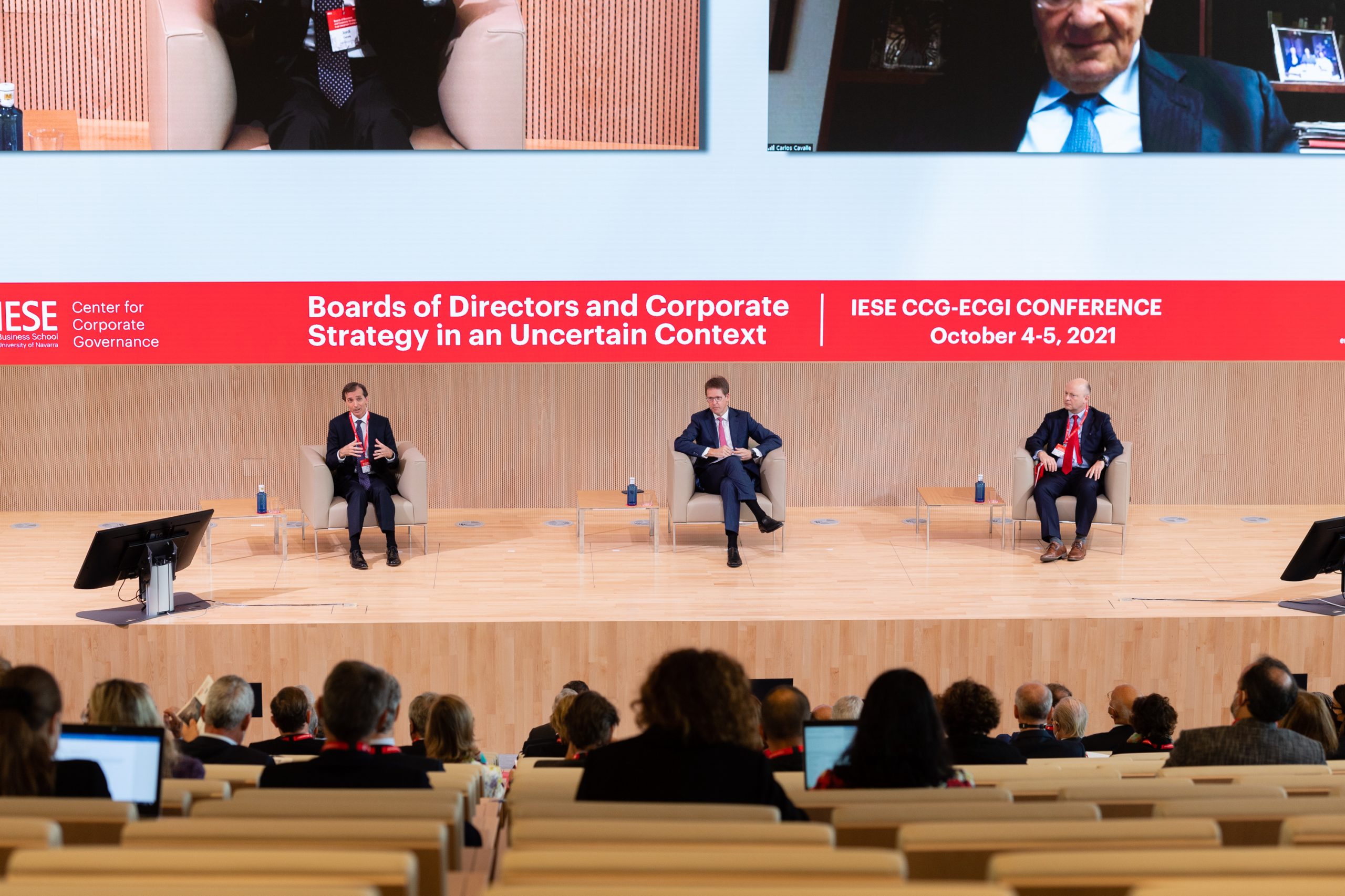Corporate strategy is central to companies’ long-term outlook and to their financial results. As boards of directors are entrusted with governing firms for long-term sustainably, boards must make important decisions about corporate strategy. Furthermore, investors increasingly expect boards of directors to understand and discuss business strategy with their CEOs to make sure that strategy and strategic decisions will help their company create sustainable economic value.
Boards that deal with strategy face a complex task. Boards of directors must comprehensively understand a company’s business and its industry, as well as the main issues in important strategies like digital transformation, de-carbonization, acquisitions, mergers, spin-offs and corporate restructuring. Certain decisions require specific knowledge and capabilities. The process by which the board makes the final strategic decision are also very relevant, since they may influence the outcome. Issues such as board dynamics, the tone at the top, the interaction between the board and the CEO, relations between the board and key shareholders or among the different board members, influence this process.
As the level of strategic uncertainties that companies and their boards face increases, it becomes even more critical that boards develop appropriate criteria and frameworks to tackle these strategic challenges and make decisions, in particular, in contexts of high uncertainty.
The 2021 IESE-ECGI Corporate Governance Conference gathered scholars of corporate strategy, corporate finance, and organizational economics to study these issues from the specific angle of the board of directors as the top decision-maker in an organization.
